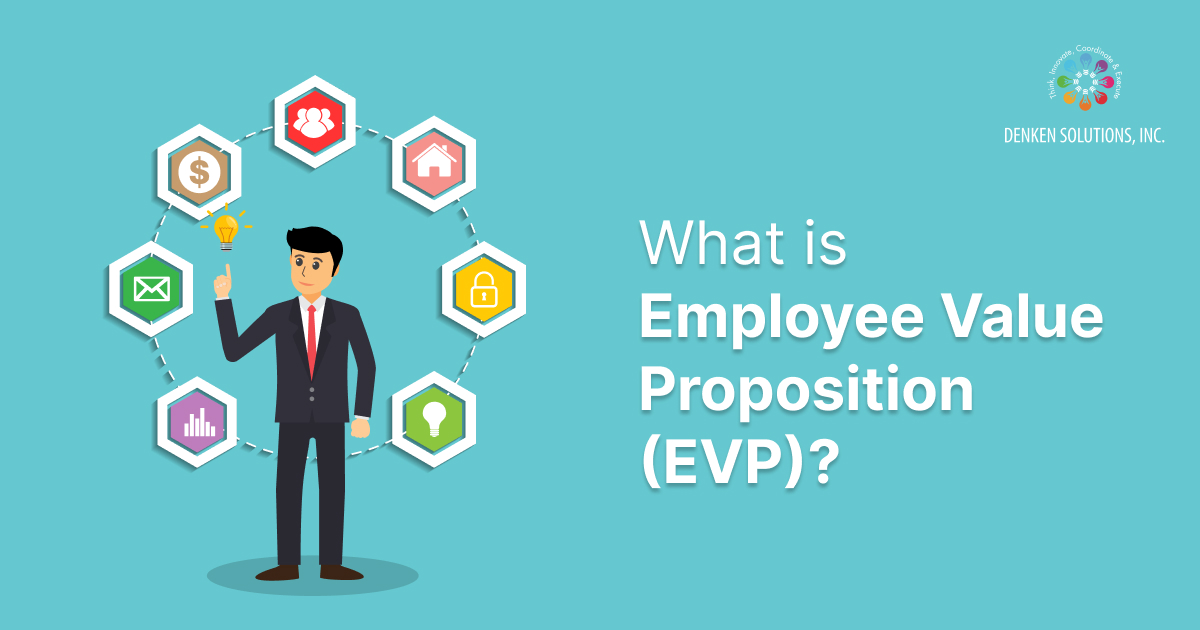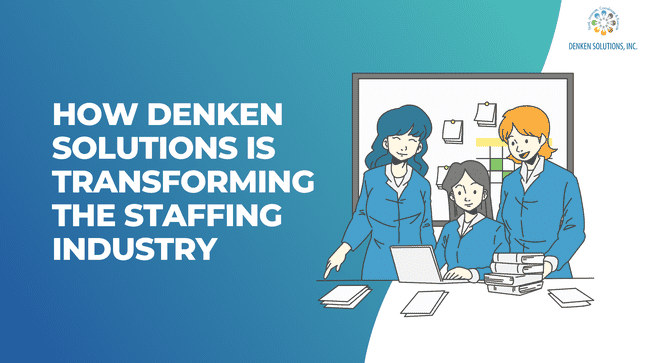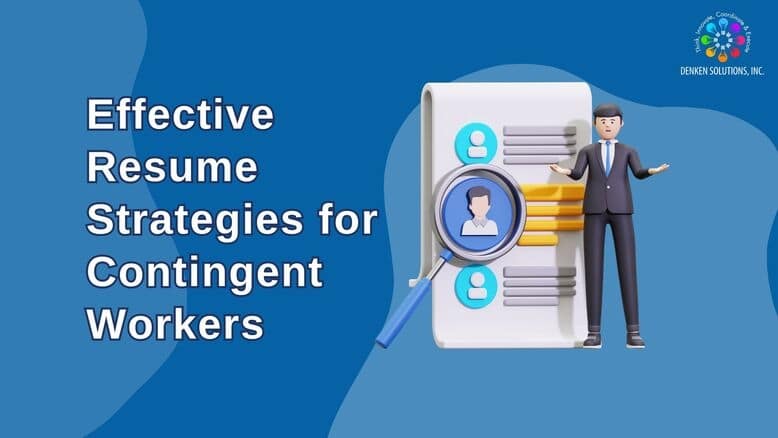Attracting and retaining top talent has become a critical challenge for organizations across industries in today’s fiercely competitive job market. In response to this challenge, companies have increasingly turned their attention to developing and promoting their Employee Value Proposition (EVP). But what exactly is an EVP, and why has it emerged as a pivotal concept in the realm of human resources and talent management? This comprehensive guide will provide you with an in-depth understanding of EVP, its multifaceted significance, and a detailed roadmap on how to create an effective EVP strategy.
Understanding Employee Value Proposition (EVP)- The definition
Employee Value Proposition, often abbreviated as EVP, is a concept that has gained significant traction in the field of HR and talent management over the past few years. In essence, an EVP is the unique set of benefits and rewards that an organization promises to deliver to its employees in exchange for their skills, contributions, and commitment.
Think of an EVP as a compelling pitch to potential and existing employees about why they should choose to work for your organization and remain engaged. It’s a holistic offering that encompasses both tangible and intangible aspects of the employment experience, ranging from compensation and benefits to culture, work-life balance, career growth opportunities, and the overall work environment.
5 Key components of an EVP
The Employee Value Proposition (EVP) is a multi-faceted concept that encompasses various aspects of the employee experience. Here, we will delve deeper into the five key components of an EVP, highlighting their significance and how they contribute to creating an attractive and engaging work environment.
1. Compensation and benefits
Compensation and benefits are the most tangible and immediate components of an EVP. They directly impact an employee’s financial well-being and are often the primary reason people seek employment. A competitive compensation package ensures that employees feel valued and fairly rewarded for their contributions.
- Salary: The core of compensation, a competitive base salary is essential to attract and retain talent in your organization.
- Bonuses: Performance-based bonuses, such as annual or project-related incentives, motivate employees to excel in their roles.
- Healthcare and insurance: Offering comprehensive health insurance, dental, and vision plans provides employees with peace of mind and promotes their overall well-being.
- Retirement plans: Contributing to retirement plans, like 401(k) or pension schemes, demonstrates a commitment to long-term financial security.
- Stock options: Equity or stock options can tie employees’ success to the company’s growth, making them feel invested in the organization’s future.
- Additional perks: Other benefits like paid time off, flexible work hours, and commuter benefits can further enhance the overall compensation package.
2. Career development and growth
Employees are not just looking for jobs; they seek opportunities to grow and advance in their careers. Career development and growth opportunities are crucial components of an EVP, as they signal to employees that their professional aspirations are valued and supported.
- Training and development programs: Offer ongoing training, workshops, and educational opportunities that enable employees to acquire new skills and stay up-to-date with industry trends.
- Mentorship and coaching: Providing access to experienced mentors and coaches can accelerate employees’ learning and career progression.
- Clear career paths: Clearly defined career paths and advancement opportunities within the organization give employees a sense of purpose and direction.
- Promotional prospects: A transparent promotion process allows employees to see how their efforts can lead to career advancement.
3. Work-life balance and flexibility
Achieving a healthy work-life balance is essential for employee well-being. An EVP that prioritizes work-life balance and flexibility can significantly contribute to job satisfaction and reduce burnout.
- Flexible work arrangements: Offering options like remote work, flexible hours, or compressed workweeks accommodates employees’ diverse lifestyles and responsibilities.
- Generous vacation policies: Providing ample paid time off allows employees to recharge and spend quality time with family and friends.
- Mental and physical health support: Employee assistance programs, wellness initiatives, and gym access promote overall health and work-life balance.
4. Company culture and values
A positive company culture and alignment with employee values are increasingly vital aspects of an EVP. They contribute to employee engagement, job satisfaction, and a sense of belonging within the organization.
- Organizational values: Clearly communicate the organization’s values and how they align with employees’ personal values.
- Diversity and inclusion: Promote diversity, equity, and inclusion initiatives to create a welcoming and inclusive workplace for all.
- Employee recognition: Establish a culture of recognition and appreciation to reinforce positive behaviors and achievements.
- Transparency and communication: Open and transparent communication from leadership fosters trust and a sense of involvement among employees.
5. Recognition and appreciation
Employees want to feel valued and appreciated for their contributions. Recognition and appreciation programs can significantly impact job satisfaction, motivation, and overall engagement.
- Regular feedback: Implement a culture of regular performance feedback and coaching to help employees continuously improve.
- Awards and incentives: Recognize outstanding achievements through awards, bonuses, or incentives to motivate employees.
- Employee appreciation events: Organize events, celebrations, or team-building activities to show appreciation for employees’ hard work.
- Career advancement acknowledgment: Recognize and celebrate employees’ career milestones and achievements within the organization.
5 benefits of strong EVP in talent management
Why is Employee Value Proposition so vital in today’s corporate landscape? Here are several compelling reasons:
1. Attraction of top talent
In today’s job market, talented professionals have more choices than ever before. They are not merely seeking a paycheck but are looking for an employer who can offer them an enriching and fulfilling career. A well-crafted EVP serves as a powerful magnet for top talent. It can set your organization apart from the competition and draw in high-caliber candidates who are not just skilled but also culturally aligned with your company.
Talented individuals are acutely aware of their worth and are in a position to select employers who can provide them with more than just a job. They are looking for organizations that recognize their skills, invest in their development, and offer an engaging work environment. In essence, a compelling EVP acts as a lighthouse, guiding exceptional talent towards your organization.
2. Enhanced employee engagement
Employee engagement is a critical driver of organizational success.
Gallup’s latest report reveals a concerning trend: 85% of employees are disengaged, with 67% falling into the unengaged category, where they simply do the bare minimum.
Engaged employees are enthusiastic, motivated, and deeply committed to their work. They go above and beyond their job descriptions and are more likely to contribute innovative ideas. Engaged employees also tend to stay with their employers longer, reducing turnover rates and the associated costs.
A robust EVP plays a pivotal role in enhancing employee engagement. When employees perceive that their organization values them, cares about their well-being, and offers opportunities for growth and development, they are more likely to be emotionally invested in their work. This emotional commitment translates into higher job satisfaction, greater productivity, and improved overall business outcomes.
3. Ensuring talent retention, reducing turnover rates
High employee turnover can be detrimental to an organization’s stability and growth. The cost of recruiting, onboarding, and training new employees can be substantial. Moreover, frequent turnover disrupts team dynamics, impacts morale, and may lead to a loss of institutional knowledge.
An effective EVP can significantly reduce turnover rates. When employees are satisfied with their overall employment experience and see a clear path for growth within the organization, they are less inclined to seek opportunities elsewhere. This not only leads to cost savings but also helps maintain a more stable and experienced workforce.
4. Positive brand reputation
In an age of transparency and information-sharing, an organization’s reputation is more accessible and scrutinized than ever before. A compelling EVP can contribute to a positive brand image. When your organization is known for its commitment to employees, it not only attracts top talent but also appeals to customers, partners, investors, and other stakeholders who value ethical and employee-centric business practices.
A positive brand reputation can act as a competitive advantage. It can enhance customer loyalty, attract investment, and foster partnerships with organizations that share similar values. Additionally, a strong employer brand can lead to positive word-of-mouth recommendations, further enhancing your organization’s desirability as an employer.
5. Improved cultural alignment
A cohesive and harmonious workplace culture is essential for productivity, teamwork, and employee satisfaction. When employees are drawn to an organization because of its EVP, they are more likely to share the company’s values and cultural norms.
This alignment contributes to a more harmonious work environment where employees are on the same page regarding the organization’s mission and vision. When individuals are culturally aligned with their workplace, they are more likely to collaborate effectively, support one another, and work toward common goals. This, in turn, enhances productivity and innovation.
Developing an effective EVP strategy
Developing an effective Employee Value Proposition (EVP) strategy is a critical step in attracting, retaining, and engaging top talent within your organization. An EVP strategy outlines how you will create, communicate, and deliver on the promises and offerings that make your organization an appealing place to work. Let’s delve into the key steps of developing an effective EVP strategy in detail:
1. Research and analysis
Employee feedback: Start by gathering feedback from your current employees. Conduct surveys, focus groups, interviews, and exit interviews to understand their perspectives on what they value most in their employment experience. This feedback will serve as the foundation for crafting your EVP.
Competitor analysis: Analyze the EVPs of your competitors and industry peers. Identify strengths, weaknesses, gaps, and opportunities in their offerings. This analysis will help you position your organization more competitively.
Market research: Keep an eye on industry trends, including changes in employee expectations, emerging benefits and perks, and shifts in work preferences (e.g., remote work trends). Staying informed about market dynamics ensures your EVP remains relevant.
2. Define your value proposition
EVP statement: Based on the insights gathered, craft a clear and compelling EVP statement. This statement should succinctly communicate what distinguishes your organization as an employer and why prospective candidates and current employees should choose your organization over others.
Core themes: Identify key themes that resonate with your target talent pool. These themes may encompass career growth, work-life balance, company culture, job security, and more. Each theme should align with your organization’s values and the desires of your employees specifically.
Segmentation: Recognize that different employee segments (e.g., entry-level, mid-level, senior-level, different departments) may have unique priorities. Tailor your EVP to address the specific needs and aspirations of each segment.
3. Communication strategy
Internal communication: Begin by communicating your EVP policies internally. Ensure that existing employees are aware of the value they receive by working at your organization. Regularly reinforce the EVP through internal channels like email newsletters, company meetings, and intranet updates.
External promotion: Extend your EVP communication externally through various channels occasionally. Your organization’s careers page, job postings, and social media profiles should prominently feature your EVP statement and its associated benefits. Share employee testimonials and success stories to validate your claims.
Consistency: Maintain consistency in your EVP messaging across all communication channels. Undoubtedly, this reinforces your commitment to the EVP and ensures that candidates receive a coherent message at every touchpoint.
4. Deliver on your promises
Actionable steps: Ensure that your organization takes tangible steps to deliver on the promises outlined in your EVP. For example, if your EVP emphasizes career growth, implement mentorship programs, training initiatives, and clear promotion paths.
Measurement and metrics: Establish key performance indicators (KPIs) to measure the effectiveness of your EVP strategy. Track metrics such as employee turnover rates, employee satisfaction scores, and the number of qualified job applicants. Regularly review these metrics and adjust your strategy accordingly.
Employee feedback loop: Continue to gather feedback from employees about their experiences. Conduct engagement surveys, stay interviews, and performance reviews to gauge whether your organization is meeting the expectations set by the EVP.
5. Adapt and evolve
Market changes: The job market, employee preferences, and industry dynamics are constantly evolving. Stay attuned to these changes and be prepared to adjust your EVP strategy to remain competitive.
Employee feedback: As your organization grows and evolves, employee needs and expectations may shift in the meantime. Continuously solicit feedback from your workforce to ensure that your EVP remains aligned with their changing priorities.
Competitor benchmarking: Occasionally reassess your EVP against the offerings of your competitors. Identify opportunities to enhance your EVP or address any gaps that may have emerged subsequently.
Read also: The ultimate guide to a highly effective HR recruitment process
Conclusion
In conclusion, a well-defined and effectively communicated Employee Value Proposition is a potent tool for organizations. It not only helps attract and retain top talent but also fosters employee engagement, supports a positive brand reputation, and aligns employees with the organization’s culture and values.
Investing in your EVP is an investment in your people, and in turn, an investment in your organization’s long-term success. By comprehending the significance of EVP and meticulously crafting a strategic approach to its development, your organization can build a workforce that is not merely motivated but genuinely inspired to contribute their best to your mission and vision. It is important to realize that an impactful EVP is not just a concept; it’s a commitment to creating an exceptional employee experience that sets your organization apart in an increasingly competitive job market.



